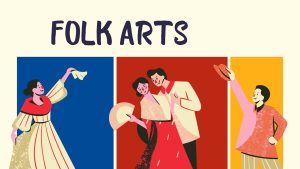Noida 08 August 2024: In a momentous occasion for Uttarakhand’s cultural tapestry, Chief Minister Pushkar Singh Dhami recently engaged in a meeting with the revered folk musician Narendra Singh Negi, endearingly dubbed “Garh Ratan.” This convergence not only underscored Negi’s unparalleled contributions to Uttarakhand’s folk music but also kindled deliberations on the preservation and amplification of the state’s abundant cultural legacy.
The Cultural Epoch of Narendra Singh Negi
Narendra Singh Negi, born on August 12, 1949, in the Tehri Garhwal district, stands as a venerated luminary in the realm of Garhwali music. With a career enveloping numerous decades, Negi has become an emblem of Uttarakhand’s folk traditions. His compositions often capture the quintessence of Garhwali existence, mirroring the elations, tribulations, and endeavors of the local populace. Through his melodic artistry, he has not merely entertained but also enlightened audiences about the opulent customs and traditions of the region.
Negi’s songs are distinguished by their lyrical profundity and harmonic elegance. His unique ability to intertwine narratives within his music renders each song a poignant tale that resonates with listeners. His oeuvre frequently addresses societal issues, cultural pride, and the picturesque Garhwali landscape, securing him a cherished place in the hearts of the people.
The Confluence with Chief Minister Dhami
During the confluence, CM Dhami articulated his admiration for Negi’s monumental contributions to Uttarakhand’s cultural heritage. He recognized the indispensable role that folk artists play in conserving local traditions and nurturing a sense of identity among the populace. The Chief Minister accentuated that Negi’s music not only entertains but also serves as a potent medium for cultural articulation and social commentary. Dhami disclosed his intentions to recommend Negi for a Padma award, acknowledging his profound impact on the folk music tableau in Uttarakhand. This accolade signifies the state’s esteem for its cultural emissaries and the importance of their work in propagating local traditions.
Propelling Folk Arts in Uttarakhand
The dialogues between CM Dhami and Negi also encompassed the imperative for augmented support and promotion of folk arts in Uttarakhand. The Chief Minister spotlighted the government’s dedication to augmenting the visibility of local artists and affording them platforms to exhibit their talents. He mentioned initiatives being orchestrated to organize folk music festivals, workshops, and cultural events that will venerate the state’s rich artistic heritage.
One of the salient proposals deliberated was the publication of a compendium of works from various folk artists, including Negi. This initiative aspires to document and extol the diverse musical heritage of Uttarakhand, ensuring that succeeding generations can appreciate and learn from these cultural gems. By archiving these works, the government aims to create a valuable repository reflecting the state’s artistic legacy.
The Cruciality of Cultural Preservation
Cultural preservation is paramount in a swiftly transforming world, where globalization often imperils local traditions. The meeting between CM Dhami and Negi serves as a reminder of the importance of safeguarding Uttarakhand’s distinctive cultural identity. Folk artists like Negi play a pivotal role in this endeavor, as they are the custodians of local stories, languages, and customs.
The government’s commitment to promoting folk arts aligns with a broader global movement to celebrate and preserve indigenous cultures. By supporting local artists, Uttarakhand can ensure that its rich heritage continues to thrive and evolve. This not only enriches the cultural fabric of the state but also attracts tourism, as visitors seek authentic experiences that connect them to the local way of life.
The Role of Education in Cultural Cognizance
Another vital aspect discussed during the meeting was the role of education in fostering cultural cognizance. CM Dhami emphasized the need to incorporate folk arts into the educational curriculum, allowing students to engage with their cultural heritage from a tender age. By introducing programs that teach traditional music, dance, and crafts, the government can instill a sense of pride and appreciation for local traditions among the youth. Workshops and training sessions led by established folk artists like Negi can provide invaluable learning experiences for aspiring artists. These initiatives can help nurture the next generation of folk musicians, ensuring that the rich traditions of Uttarakhand are passed down and celebrated.
More Latest News
- Uttarakhand News: Three Youths Arrested While Plotting Crime; Gun and Ammunition Seized
- अब उत्तराखंड में बनेगा स्वास्थ्य आपातकालीन संचालन केंद्र, केंद्र
- Over 230 Million Tourists Visit Uttarakhand in 3 Years
- Nainital’s Pangot-Dechauri Road Project Gets Green Light
- Car Crash Claims 3 Lives in Uttarakhand on Bhai Dooj
- Tragic Car Accident in Uttarakhand Claims 3 Lives
- Dehradun: Man Arrested for Rape Under False Marriage Promise
- CM Dhami Flags Off 6 Mobile Toilet Vans for Purnagiri Fair
- Chief Ministers Not “Kings”: Supreme Court On Uttarakhand Appointment
- उत्तराखंड :(बड़ी खबर) हल्द्वानी में अशरफ अली के घर से तहसील चलाने
- Monsoon Update: IMD Issues Orange Alert for Nine States, Heavy Rainfall Warning for Uttarakhand and Himachal Pradesh
- उत्तराखंड समाचार: परिजनों से बिछड़ी बुजुर्ग महिला, पुलिस जवान ने मिलाया
- Uttarakhand Upnal Workers Threaten Indefinite Strike
- देहरादून : (बड़ी खबर) UKSSSC मामला ये पूर्व न्यायधीश करेंगे जांच
- Acid Attack on Youth for Bursting Crackers in Roorkee

